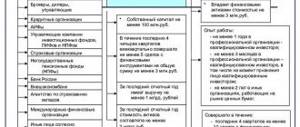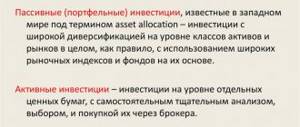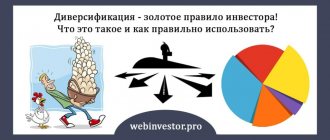Bookmarked: 0
Who is a speculator? Description and definition of the concept.
Speculation is the opportunity to make a profit due to the difference between the purchase price and the sale price. At its core, any trading operation can be considered speculative. Authors of economic literature often try to separate the concepts of speculation and investment. But there is no consensus on this matter.
A speculator is a market subject, which can be either an individual or a legal entity, who is capable of completing a purchase and sale transaction in order to obtain personal financial gain. The term speculation comes from the Latin word "Speculatio", which can be translated as "the process of stalking or looking out." A speculator is often the name given to someone in economics, philosophical writings, or figuratively.
Who is a speculator?
A speculator (from the English “Speculatio”) is a trader who trades on the difference in the cost of financial instruments in order to make money (this can be currency pairs, stocks, futures, metals, indices, commodities, etc.) A
speculator can be called any ordinary trader. After all, his goal is simply to make money on the difference in the value of the asset. He doesn’t care where the market goes tomorrow. It doesn't matter whether the economy is growing or falling. He is only interested in money.
- How to make money on the difference in exchange rates
- How to make money on the stock exchange
- Strategies for trading on the stock exchange
We can say that in Forex, traders who make at least one transaction per month are already speculators.
Sign language
Traders may use sign language when conducting conversations and making trades on a noisy trading floor. There are four main groups of gestures:
- I buy (the back of the hand is shown) - I sell (the palm is shown).
- Quote: The hand is at some distance from the face. The number of extended fingers indicates one or more last digits of the quote. If the trader is satisfied with the price, he shows it with a gesture and moves his hand from side to side, which means the deal is concluded.
- Quantity: hand touches chin (ones) or forehead (tens), intermediate values are shown by combining tens and ones.
- Month—each month of the delivery cycle has its own gesture[3].
Bulls and bears - types
Stock speculator, who is he? This is one of the participants in trading on the stock market. This trader makes money on short-term fluctuations in the rates of assets, currencies, and securities. The professional stock exchange community jokes that a failed speculator is nothing other than an investor.
Today in the stock markets you can find two main types of traders involved in speculation:
- bears - persons who play short (sell goods that they do not have in stock for a certain time interval, at a price fixed at the time of the transaction);
- bulls are citizens who prefer to play for growth (buying shares and contracts from counterparties for the next resale).
Traders of both types carry out their transactions on the stock exchange in cash and forward transactions. Preference is given to the second option. Since there are fewer combinations in cash transactions, which means the benefits are much more modest.
Big traders usually carry out their manipulations on the stock, foreign exchange or commodity markets. A certain product is used as a tool for making transactions. Speculators can be organizations, individuals, and professional bidders.
What is speculator trading? Stock speculation is organized. Their conduct is not associated with the purchase and sale of real products. Futures contracts are most often used as a trading instrument. Stock speculation is usually carefully planned.
This was proven by the German pensioner Ingeborg Mootz. An elderly stock speculator earned astronomical sums by buying and selling shares of large German banks. This allowed her to earn an income of more than 130%. In just one of the transactions, the granny received a profit of 100 thousand euros.
What is speculation?
In a broad sense, speculation is making money from fluctuations in the value of assets. A classic example of speculation is trading in the Forex market. A trader buys or sells a currency pair, making money on changes in the value of one currency relative to another. Speculators also work in the stock and derivatives markets of futures and options.
Speculators, frankly speaking, do not care where the price goes. They make money in both rising and falling markets, trading either long or short.
There are different types of speculators - some close trades within a day, some close trades between days, and some hold positions for weeks and months. They have one thing in common: speculators do not need the asset itself. They just want to make money from it. They don’t care not only about the price, but also about the asset. They make equally good money on Sberbank shares, cotton, oil, and the euro-dollar.
Kinds
The Russian Federation, at one time, managed to go through all of the above factors, and it turned out that in the process of speculation several types of speculation arose:
- stock speculation;
- currency speculation;
- speculation in precious metals;
- real estate speculation.
Diversification
To insure risks, diversification is often used - that is, investing not in one asset, but in several. It is reasonable. But you shouldn’t spread yourself too thin across a variety of assets, since it will be quite difficult to carefully monitor all of them.
It is better to diversify within one instrument - for example, buy shares of different companies. Or compensate for risky speculation in currencies and stocks with conservative investments in reliable bonds.
Author of the article, financial expert
Dmitry Tachkov
Hello, I am the author of this article. I have a higher education. Specialist in finance and banking. Worked in commercial banks of the Russian Federation for more than 3 years. I have been writing about finance for more than 5 years. Always on topic about the best deposits and cards. I make profitable deposits and receive high cashback on cards. Please rate my article, this will help improve it.
about the author
Useless
60
Interesting
112
Helped
52
What is investment?
For an investor, on the contrary, the choice of an asset is the most important thing in his activity. At the same time, he selects an undervalued asset and acquires it as his own. Then he either sells it at a higher price, or receives constant payments from owning it (dividends, coupons, etc.).
The classic example of an investor is Warren Buffett, who holds stocks in his portfolio for years. He looks for stocks that are undervalued by multiples and then buys them at the maximum. As soon as the share of paper in the portfolio becomes disproportionately large, he sells part of the asset and buys more shares with the freed-up cash. Then he repeats and repeats.
And here’s another interesting article: Brokers with the cheapest rates for buying shares
In essence, an investor is an unfinished speculator who trades only long and only over a long distance. In fact, he may sell the stock the next day if it rises sharply. Or get rid of it if it’s more profitable to go cash.
Jesse Livermore, Trading Stocks. The classic formula for timing, money and emotion management"
The book by Jesse Livermore himself, written by him shortly before his suicide in 1940, is also read in one breath. The popularity of the book among those who are interested in all aspects of stock trading does not decrease, because valuable information can be gleaned from literally every page.
One of the many pieces of advice given in the book is: “Boys, I decided a long time ago that if there were going to be mistakes in my trading, I wanted them to be my mistakes... If you know anything about the stock I'm trading... please , do not tell me". The preface to the book says: “Be prepared to spend the next couple of nights without sleep, because you need to have truly iron endurance to tear yourself away from this book.” And those who have already read it believe that this is the best thing that has been written about stock trading.
Is a speculator a pest or a market orderly?
Many people still mistakenly believe that speculators not only do not bring any benefit to the economy, but even cause some harm to it. This state of affairs actually took place in the USSR, under the conditions of a planned economy. In those distant times, it was not for nothing that speculators were considered pests; their activities impeded the free distribution of goods and, to a certain extent, contributed to the creation of shortages.
Criminal liability for profiteering was fully justified when it came to profiting from essential goods in particularly difficult years for the country. Speculative transactions with food products during the Great Patriotic War were especially blasphemous. The speculators profiting from the misfortune of others at that time can hardly be called people.
However, at present, in a market economy, speculators not only do no harm, but, on the contrary, contribute to the creation and maintenance of market liquidity. Thanks to their activities, supply and demand are maintained, and price gaps are smoothed out (the spread is reduced).
This is bad?
Not at all. Thanks to speculators, price movement occurs. You could say that speculation is the wind that drives the waves of the seas of assets (oh, how beautiful, I’m a real poet).
If there were no speculators, then there would be no supply and demand and there would be no stock or other market at all. We can say that these are sellers and buyers of stores, without whom there would be no trade at all.
Therefore, speculation is good. Many professional investors have just grown up from speculators (traders). They see the peculiarities of the market and understand when it is worth taking an asset and when it is time to sell it.
Why you shouldn't listen to advice
If a man intends to succeed in this game of the stock market, he must believe in himself and in his mind. This is why I don't believe in tips and tricks.
If I bought shares on Smith's advice, then I should sell these shares on his advice. I become dependent on him.
What if he's on vacation when it's time to sell? No, gentlemen, no one will be able to make really big money from tips. I know from experience that no one can give me advice or a set of advice that will make me more money than my own understanding. It took me about five years to learn to play smart enough to make big money when I was right.
Photo from azartnews.com
Investors and speculators
First you need to decide what the difference is between investors and speculators (traders). The basic difference lies in the way an investor and a speculator approach the markets, trades, and decisions. The most important feature of a speculator is the focus on making quick (short-term) profits: earn a few percent in a short period of time from several minutes to several days and exit the transaction. The investor, on the contrary, is focused on obtaining long-term profits over a period of several years.
A speculator essentially doesn’t care what to trade, be it oil futures or cucumbers (if such were traded on the stock exchange). The main thing is that the instrument is sufficiently volatile, because the speculator makes money on market price fluctuations. The trader tries to predict where the market will go, analyzes the price and trading volumes, the news background, looks for trends, and uses technical analysis indicators.
To increase his profit, a trader uses leverage (borrowed funds). For example, he buys shares for 100,000 rubles, 50,000 of which are his, and the rest are borrowed shares provided by the broker. But this is a double-edged sword - leverage increases not only profits, but also losses. Speculators can also “short” the market - go short, that is, make money on its fall. In order not to go into a heavy loss, stops are used - automatic orders that close the transaction if the market goes in the wrong direction.
The approach of an investor is very different from a speculator: the essence of the instrument is much more important to him. He buys shares as a stake in a business, not as something that is subject to market fluctuations. The investor makes money from the growth in business value and dividends. What matters to him is what is behind the shares, what kind of company it is, what its indicators are, profits, reporting and prospects. For an investor, there is a difference between the market price and the value of a stock.
Price is what you pay, value is what you get.
Warren Buffett
The main activity is the analysis of the financial statements of the issuer, its business and the search for promising or undervalued companies. To do this, he uses multipliers: price/earnings, price/book value, profitability and others. Investors do not use stops, leverage, or short the market, but use diversification to reduce risks.
Another category of investors is portfolio investors. They invest using an Asset Allocation strategy and do not analyze companies, markets or securities. Their work comes down to broad portfolio diversification and the distribution of their funds into various asset classes (stocks, bonds, gold, real estate, etc.) using index funds that repeat the dynamics of market indices. This strategy allows you to practically not waste your time on investments, and brings a return at least not lower than the market one.
Working with a Specific Tool
Stock.
The fair value of shares is determined by the financial performance of the issuer company. Quotes are highly dependent on the release of certain corporate news, as well as on events in the industry. Serious movements are also observed during reporting periods.
The price of shares in the market fluctuates constantly. The potential earnings from speculation on them are high, as is the potential loss. To correctly predict price movements, you will have to learn the basics of financial analysis. For each security, the issuer's production indicators and development prospects are assessed. You will also need to carefully monitor the news background.
How much do they earn?
Let's try to compare what kind of profitability investors and speculators receive. In 2004, a study called "Do Individual Day Traders Make Money" took individual traders' trading data on the Taiwan Futures Exchange from 1995 to 1999 and analyzed the results.
The study states that 97% of exchange accounts are owned by private traders. Day traders make about 20% of the daily trading turnover. The results of the study showed that over a period of 6 months, more than 80% of traders lose money, only a small part makes money consistently, taking into account trading costs.
In 2008, the China Banking Regulatory Commission (CBRC) ordered banks to suspend forex margin trading for retail clients, saying it was too risky for investors. The article provides statistics that from 80% to 90% of clients lost money on margin currency trading (link).
In 2011, an updated study by the same scientists was published, in which data was taken for a longer period of time from 1992 to 2006. The study showed that on average, only 15% of day traders make a profit per year. And only 1,000 people out of 360,000 (less than 1%) who earned the largest profits in the current year were able to earn the next year.
Now let's look at the results of Russian traders. For several years now, the Moscow Exchange has been holding the Best Private Investor competition in which contestants compete with each other for three months in an effort to earn maximum profitability. If you look at the top participants, then our species will see truly cosmic returns of hundreds, or even thousands of percent.
Which is better to choose?
Trading is a very risky activity. If you want to play on the stock exchange, you should allocate a small amount of money for this, which you won’t initially be sorry to lose. Separate this money from your other investments immediately.
Don't expect to get rich quick in the stock market. Here you can quickly only lose your money.
If you have time to study company reports and the desire to do this, it makes sense to engage in active investing. But we must not forget about diversification. Investing all your money in even the most promising company or industry is a huge risk.
If you do not want to spend a lot of your time studying financial indicators and choosing stocks, it is best to invest in bond or stock index ETFs. If desired, you can combine the selection of individual securities with investments in ETFs. However, it is not necessary that active investments will increase the profitability of your investments. Passive income is both the most reliable and quite effective.
Story
Just a couple of decades ago, this term meant something negative and abusive. Speculation was subject to a special article in the Soviet Criminal Code, which implied punishment including imprisonment. Soviet citizens also did not like speculators - people who speculated on scarce products and foreign goods, selling these things at exorbitant prices.
The first mentions of speculative activity refer to Holland in the 17th century, where tulip bulbs were widely resold. Many residents sold their property in hopes of making a quick profit. But a century later, the situation in the country worsened and many were ruined.
At the present time, speculation is an obligatory component of the modern economic market, which must perform the corresponding functions.
There are several definitions of the term "speculation". This:
- acquisition and resale of various goods at inflated prices to increase one’s own profit;
- acquisition of securities for sale and making a profit from the difference received from the existing exchange rate on the market;
- a confirmed plan where the result is profit.
Modern economic experts claim that speculation is a kind of enrichment by realizing the difference between prices during a certain time interval. Many people nowadays are interested and continue to engage in speculative activities in the field of valuable documents, expensive metals, foreign currency, real estate, property, etc. – wherever transactions involving large amounts of money and investments are involved.
The purpose of speculation is to purchase things at a lower cost and resell them at several times the price. It is from this difference in the price of the product that the speculator’s income lies.










